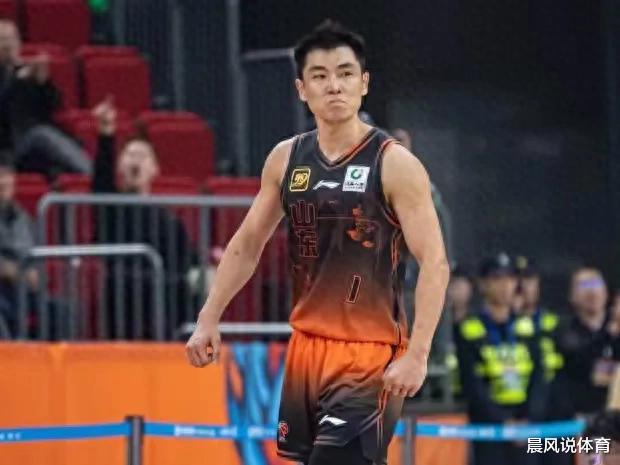Translation of the article content into English:

As the CBA regular season progresses, the competition for the playoffs becomes increasingly fierce. In particular, the performance of domestic guards has become a key factor in determining how far each team can go in the playoffs. While the performance of foreign players is still important, the gap between teams has been somewhat leveled due to restrictions on the number of foreign players. As a result, the level and performance of domestic guards have become more prominent.

Currently, the performance of domestic guards in the CBA can be divided into four tiers. The first tier consists of players who can become the core of their respective teams. There are currently only two such players: Xu Jie from Guangdong and Gao Shiyan from Shandong. They play important roles in their teams, with coaches having high trust in them, and their ball usage is on par with that of foreign players. Xu Jie averages nearly 40 minutes per game this season, with stable statistics of 16 points and 8 assists, becoming a key figure in Guangdong's tactical deployment. In crucial games, Coach Du Feng almost never substitutes him, demonstrating his importance to the team.

Gao Shiyan also performs exceptionally well, especially in the 31st round where he contributed 19 points and 7 assists, showcasing his core status within the team. His two crucial three-pointers laid the foundation for Shandong's victory, highlighting his ability and influence in critical moments.

The second-tier guards are those who can effectively support foreign players. These players include Zhao Rui from Xinjiang, Zhao Jiwei from Liaoning, Wang Yibo from Zhejiang, Fang Shuo from Beijing Enterprises, Liu Xiaoyu from Beikong, and Jiang Weize from Jilin. Although they have a certain reputation and strength within their teams, they often play a supporting role to foreign players. Taking Liaoning as an example, Ferg as the main point guard, Zhao Jiwei takes over the ball-handling responsibilities when Ferg is resting, demonstrating his value as a supporting player.

The third-tier guards are usually seen as transitional players, mainly responsible for delivering the ball to foreign players. These players include Jiang Wen from Beijing, Wang Lanqin from Liaoning, Lin Yanting from Beikong, Huang Rongqi from Guangdong, and Yu Dehao from Shandong. Their tasks are more focused on dribbling and defense, often standing out defensively to help stabilize the team's situation.
Finally, the fourth-tier guards typically only come on the court when foreign players are off, playing a substitute role. Some strong teams this season, such as Shanxi, Shanghai, and Qingdao, rely mostly on small foreign players to play the point guard position, with domestic guards having relatively fewer opportunities for playing time.
Among these four tiers, there are two players whose performances are worth watching, and their futures remain to be observed. Sun Minghui is the only domestic point guard in the CBA with strong attacking capabilities and is also an All-Star-level national player, the absolute core of Guangsha. His presence is undoubtedly a key factor in Guangsha's outstanding performance this season. Although Sun Minghui's height meets the standard for point guards, he often plays as a shooting guard in Guangsha, showcasing his flexible style of play.
Liao Sanning is temporarily undecided due to injury issues, and upon his recovery, he may occupy a place among the guard tiers.
In summary, the tiering of domestic guards in the CBA reflects their different roles and influences within their teams. As the season progresses, the performance of guards will directly affect each team's competitiveness in the playoffs. For fans, paying attention to the performances of these domestic guards is undoubtedly one of the highlights of this season. We look forward to them continuing to shine and bringing more exciting moments in the upcoming games.